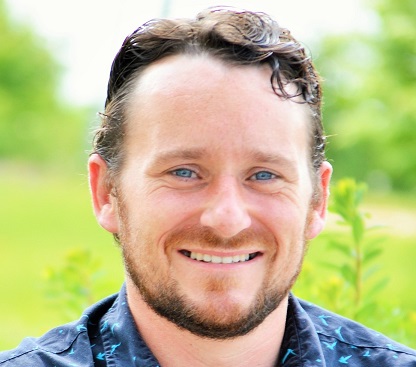There are two big things Patrick Kiely hopes his company Island Water Technologies will accomplish in 2016: one he is certain will happen, and the other he hopes will happen.
Montague, P.E.I.-based Island Water Technologies, which uses its unique technologies to treat wastewater in small communities or outlying areas, is now working with three distributors to sell its ClearPod product across Canada. Kiely, the company’s CEO, is certain sales of ClearPod — a small device that is dropped into a septic tank to restore performance of failing systems — will increase through the year.
What he hopes will happen this year is the first installation of the company’s larger and newer product.
“I hope the highlight of 2016 will be the installation of one or two of the world’s first mobile solar-powered water treatment plants — one in New Brunswick and one in North Africa,” said Kiely in an interview last week. “Now that’s an optimistic goal, but it’s what we’re working toward.”
P.E.I.'s RevIQ to Double Staff
Until this month, Island Water Technologies and ClearPod were two separate companies with Kiely being a key shareholder in both. ClearPod produced its product for septic tank owners, and Island Water Technologies was pioneering a solar-powered water treatment facility for small communities.
The company has received funding from Innovacorp (secured because it has based all of its product testing and validation in Truro), various angels and the Atlantic Canada Opportunities Agency. ClearPod and Island Water Technologies have just merged under the Island Water Technologies name and have enough funding for about the next 18 months.
Island Water Technologies also attended an incubator hosted by Cycle Capital Management, the Montreal-based cleantech fund that has also worked with Halifax companies SABRtech and LED Roadway Lighting.
The enlarged company is now selling ClearPod through distributors in British Columbia, Ontario and Nova Scotia, and is looking at lining up sales agreements in the United States in the Carolinas, Georgia and Texas.
“We’re really eager to drive the sales in Canada, and we’re also looking at select states in the U.S.,” said Kiely. “The challenge for us is to find distributors who can sell the product. It’s very difficult to sell anything involving septic tanks to homeowners unless they are recommended by people who work with septic systems — so tank manufacturers, pumpers, installers.”
Meanwhile, the company has been working with the Cycle Capital and Dalhousie on solar-powered water treatment facilities, and is enhancing the product by making it mobile. What that means is they can be driven to remote locations, such as outlying communities or mine sites, where there is no — or limited — electricity, and treat the water.
Read our Previous Report on IWT
Kiely said the first two markets for the product will be the military and the mining industry. He is interested in using the facilities for disaster relief, but agencies working in that field want to know the technology is 100 percent proven before they use it. They’ll be later adopters, he hopes.
Kiely cautions that a lot of things would have to fall into place for the mobile units to be in operation this year. He’s more confident they can be operational in 2017.
“In reality we’re looking at 12 to 18 months from now, and it’s looking pretty good,” he said.










